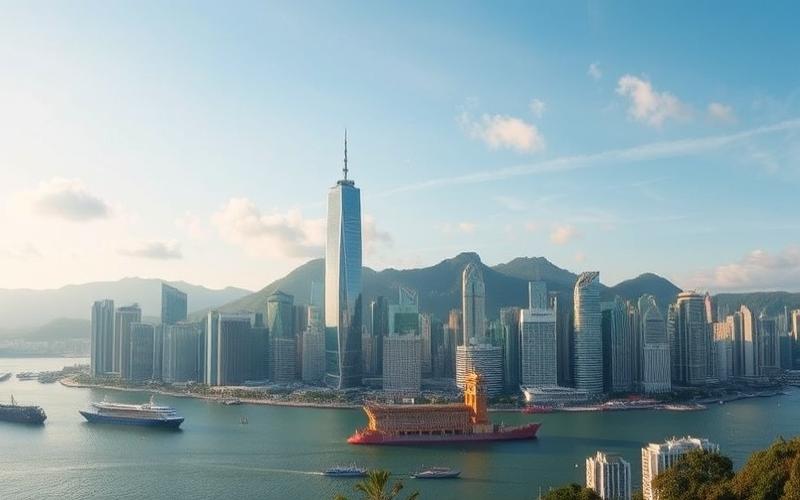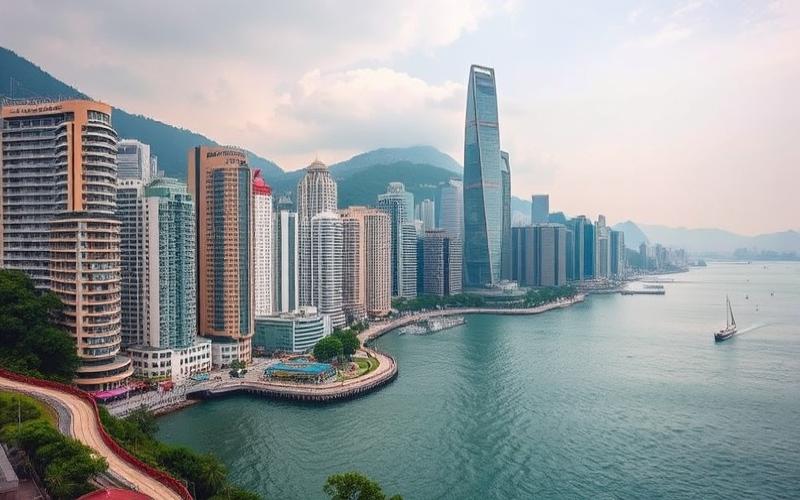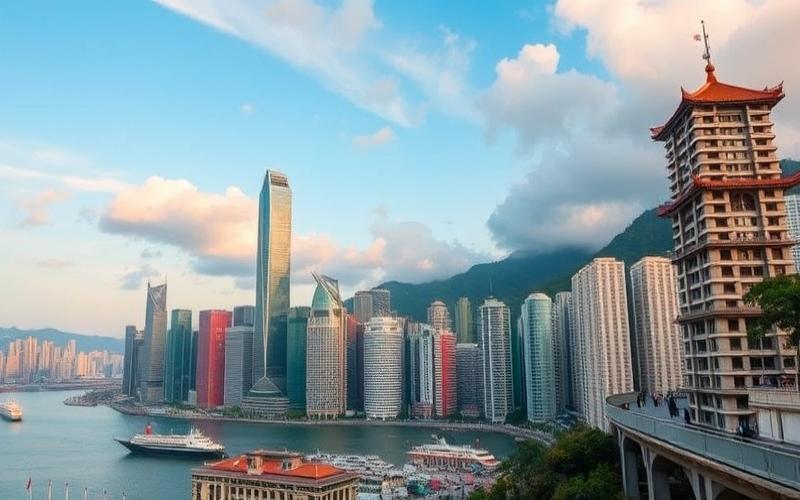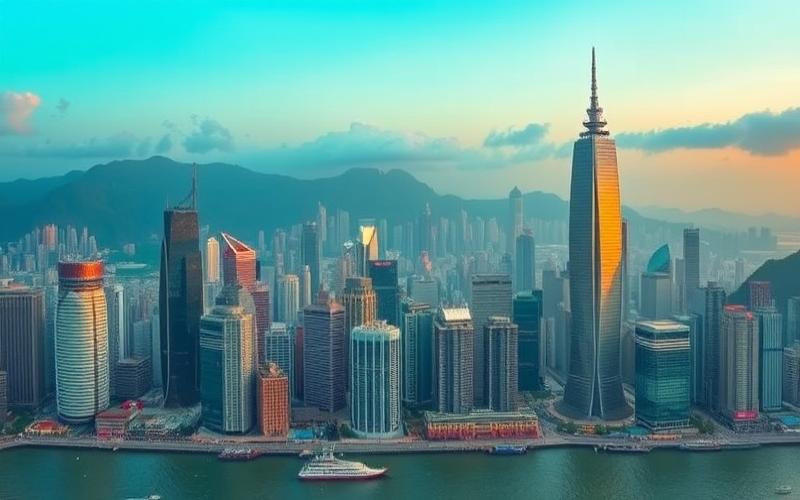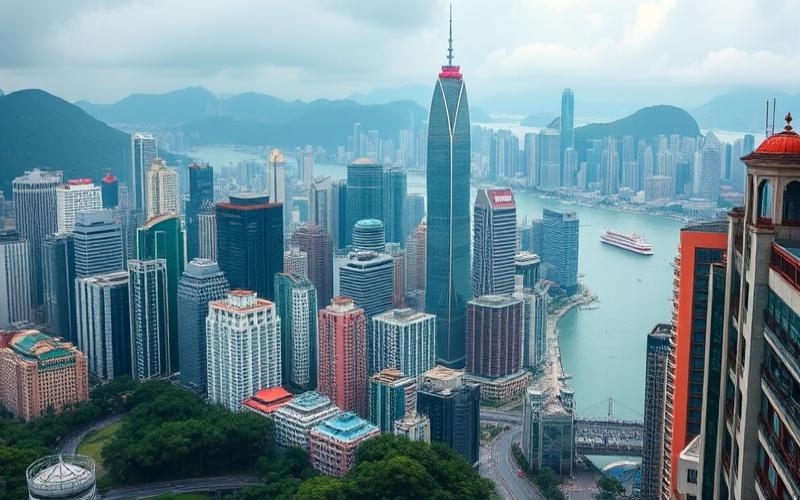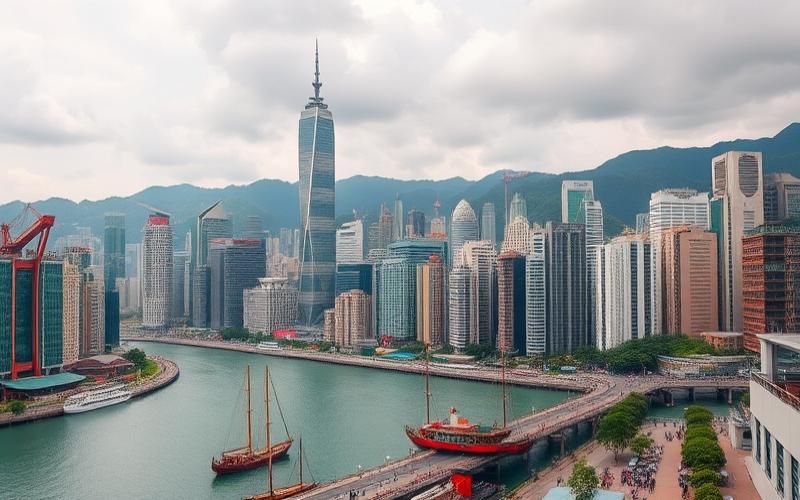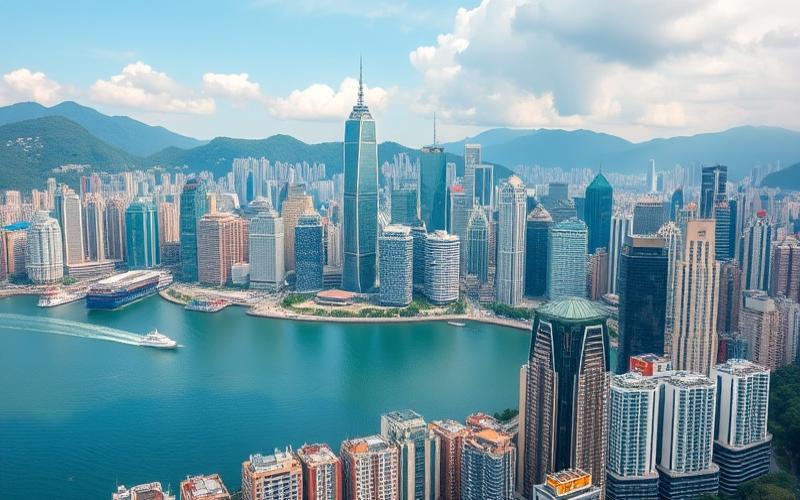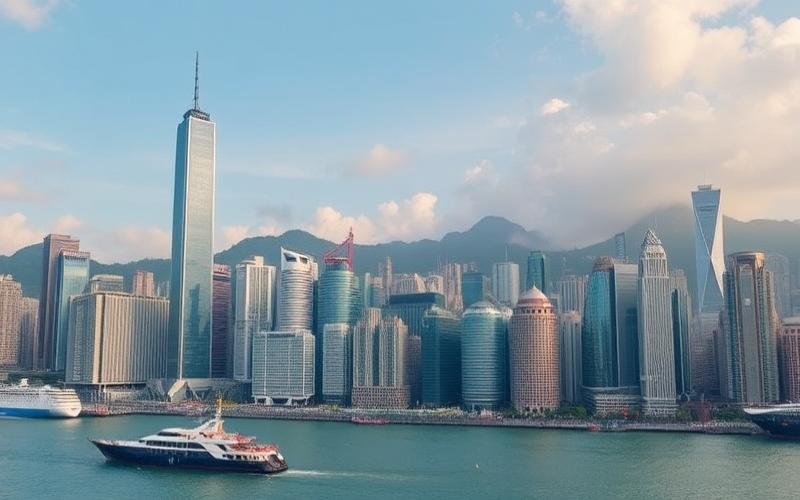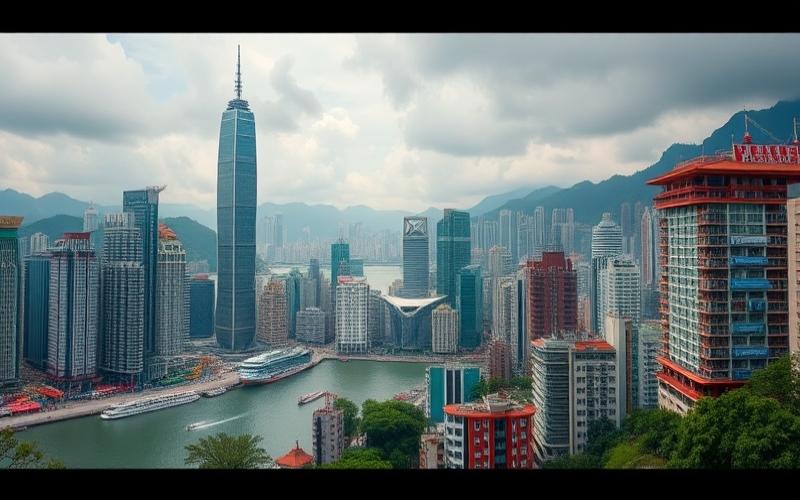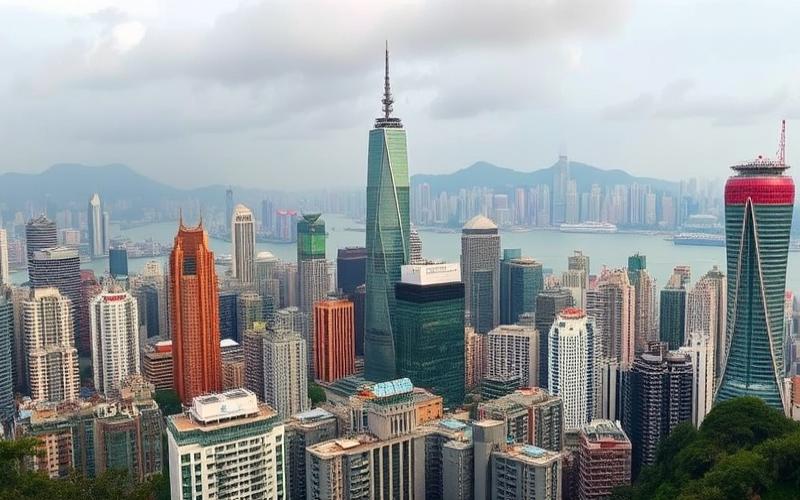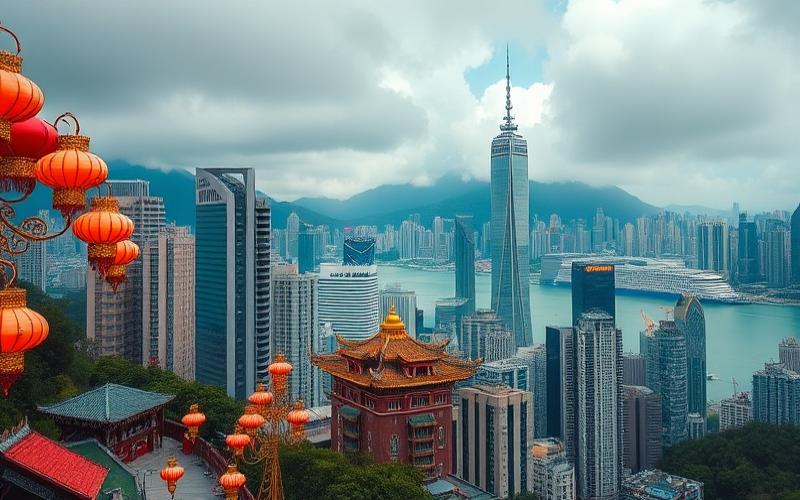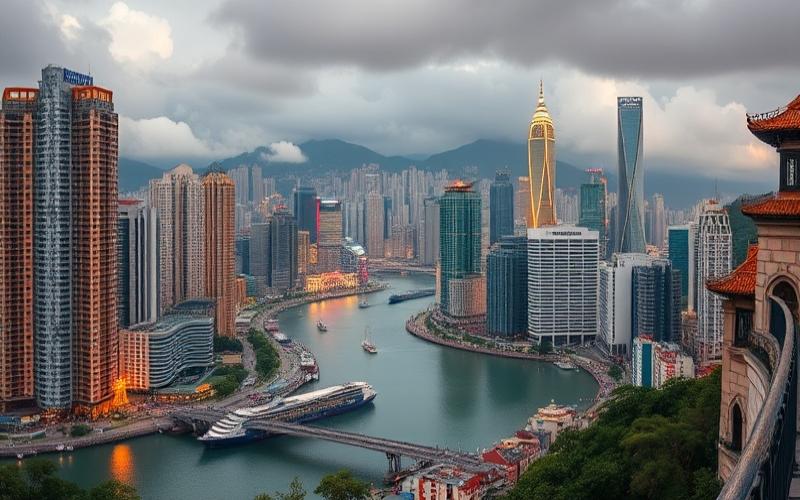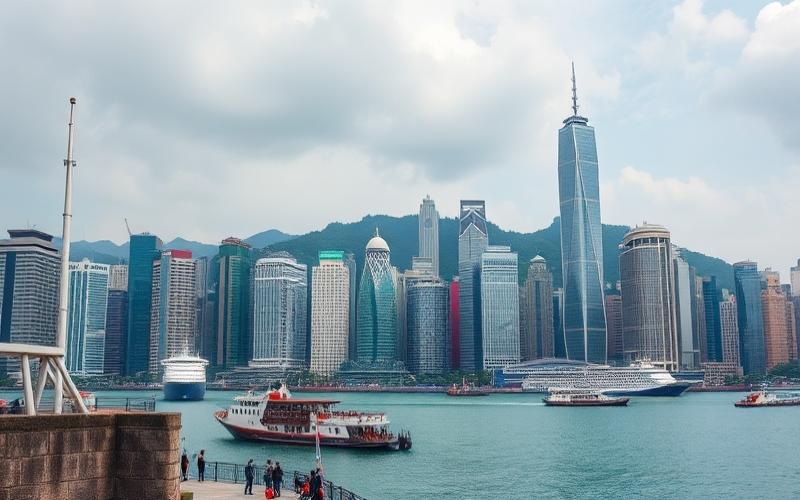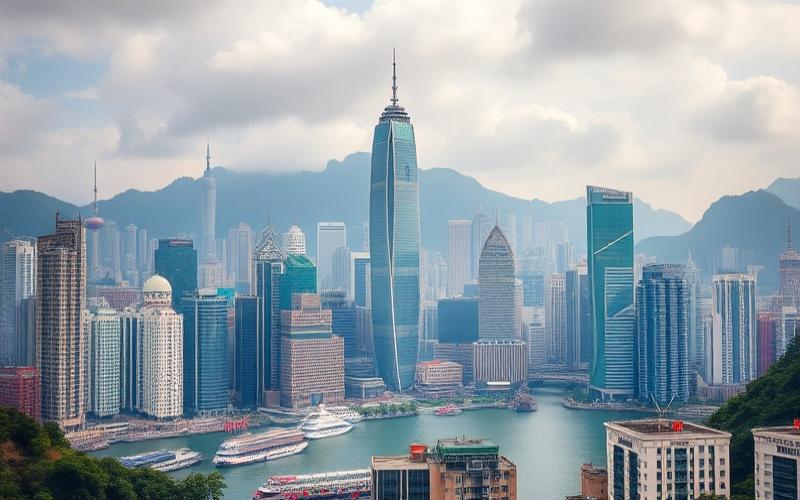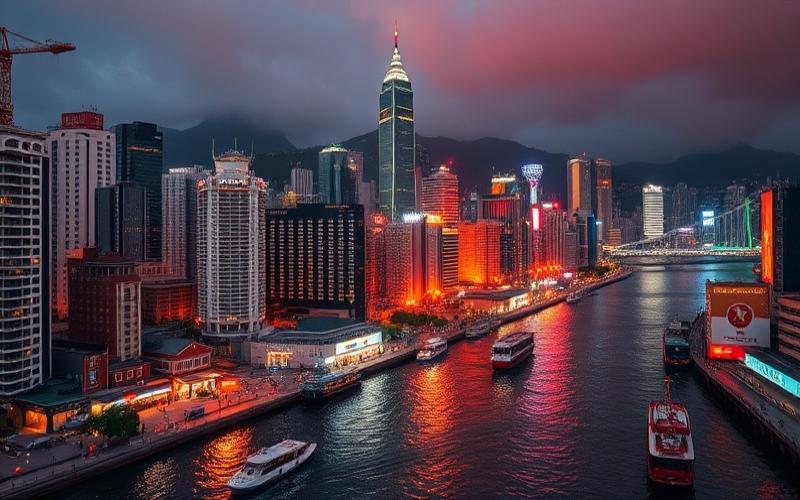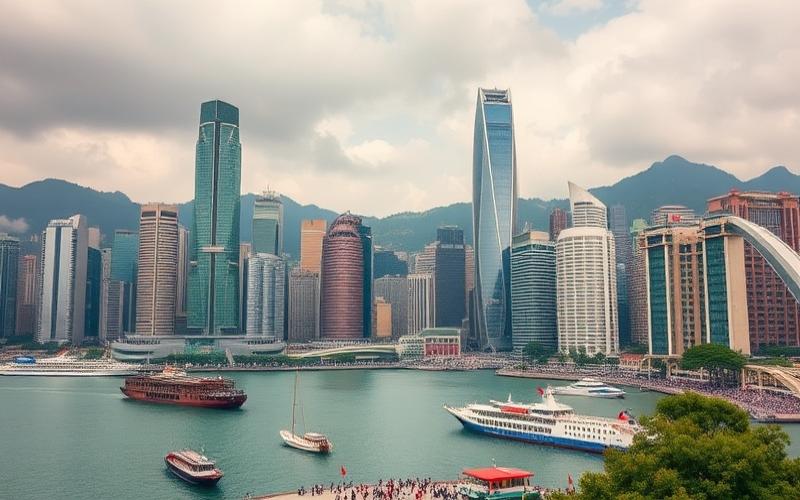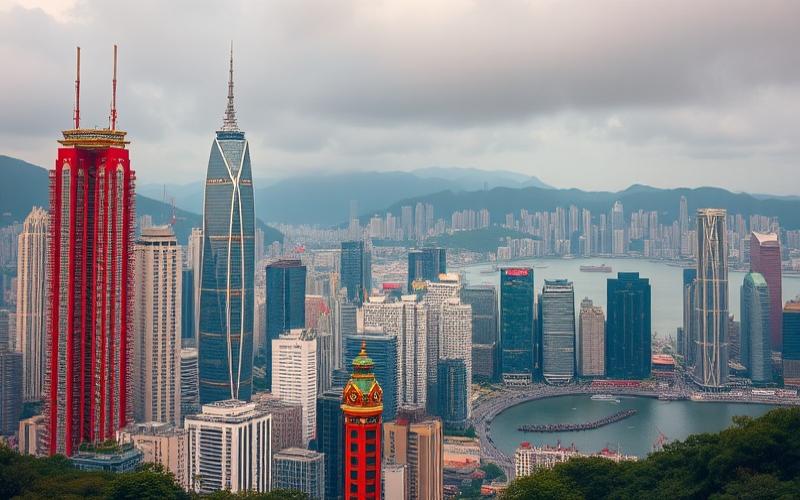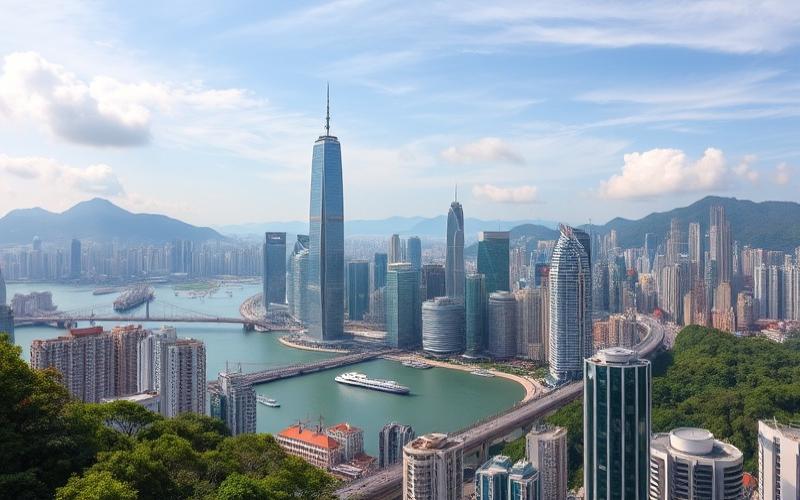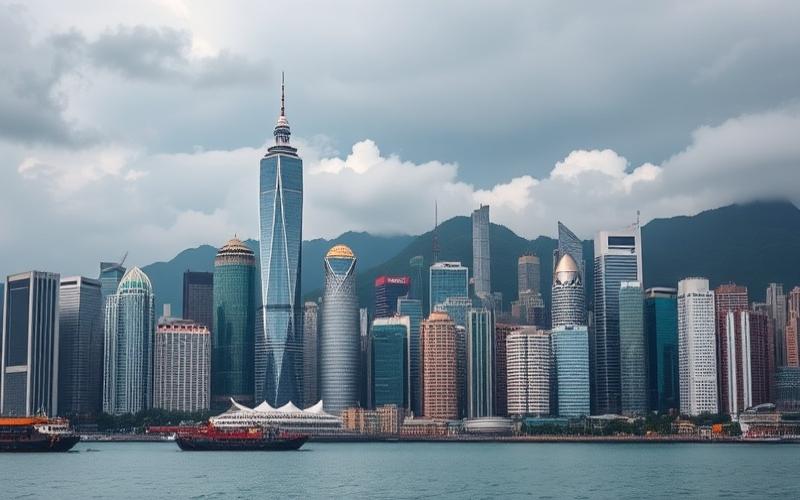
 Published on and written by Cyril Jarnias
Published on and written by Cyril Jarnias
Hong Kong: A Unique Coastal Real Estate Market
Hong Kong, with its vibrant blend of modernity and traditional Asian culture, boasts one of the most beautiful coastlines in the world, attracting numerous savvy real estate investors.
However, the waterfront property market is as unique as it is complex, requiring a thorough understanding of local specifics.
Whether you’re a resident seeking an idyllic second home or a foreign investor looking for lucrative opportunities, this guide will provide essential information to navigate this dynamic environment.
What You Need to Know
We cover the most sought-after areas, legal procedures, and tips for making wise investments in this exclusive market.
Good to Know:
Investing in Hong Kong’s coastal real estate requires careful analysis of market trends and local regulations to maximize return on investment.
Hong Kong’s Hidden Coastal Gems: Where to Invest?
Lesser-Known or Less Popular Coastal Neighborhoods in Hong Kong with Investment Potential
- Lei Yue Mun
A small fishing village located east of Kowloon, featuring an authentic and still-preserved waterfront.
Accessibility: MTR Kwun Tong Line (Yau Tong Station), direct buses and minibuses from downtown.
Infrastructure: Gradual development with some new residential complexes, but the area maintains traditional character.
Amenities: Renowned fish markets, local waterfront restaurants, nearby primary schools. - Ma Wan (Park Island)
An island located between Tsing Yi and Lantau Island, known for its natural environment and quiet beaches.
Accessibility: Restricted private vehicle access; regular ferry or bus shuttles to Tsing Yi/MTR/Tsuen Wan/New Territories.
Infrastructure: Park Island complex with pools, sports facilities and green spaces; absence of dense urbanization typical of central districts.
Amenities: Small local shops, supermarket on the island. - Siu Sai Wan (eastern tip of Hong Kong Island)
A residential neighborhood less known than central areas or Repulse Bay/Stanley but offering unobstructed sea views.
Accessibility: MTR Chai Wan then dedicated buses/minibuses to Siu Sai Wan; direct road access via Island Eastern Corridor.
Infrastructure: Recent large residential developments with municipal sports facilities.
Amenities: Modest shopping centers in immediate vicinity; international schools in neighboring districts. - Tseung Kwan O South (areas like LOHAS Park)
An emerging neighborhood extending southeast of the New Territories with recently redeveloped coastline.
Accessibility: Directly served by MTR Tseung Kwan O Line.
Infrastructure: Multiple recent or ongoing high-end new projects; landscaped promenades along the inner harbor.
Amenities: Modern shopping centers (The LOHAS), new-generation public sports facilities.
| Area | Accessibility | Infrastructure | Main Amenities |
| Lei Yue Mun | MTR + Bus | Traditional residential | Fish market/restaurants |
| Ma Wan/Park Island | Ferry/Bus only | Private residential complex | Pools/shops/supermarket |
| Siu Sai Wan | Bus from Chai Wan/MTR | Recent developments + public facilities | Proximity to schools |
| Tseung Kwan O South/LOHAS Park | Direct MTR line | New projects/promenades | Modern shopping centers |
Current Real Estate Market Trends in These Areas
– Gradual price increases due to relative scarcity of affordable coastal properties compared to historic neighborhoods like Repulse Bay/Southside where prices are very high.
– Recent increase in transactions for spacious family homes offering direct or semi-direct sea views in these peripheral neighborhoods thanks to ongoing urban infrastructure development and fast transport links to Central/Kowloon.
– Growing interest in apartments offering sea-facing balconies/verandas post-pandemic (work from home, search for outdoor spaces).
Concrete Examples of Successful Investments
– At LOHAS Park/Tseung Kwan O South: Several apartments purchased off-plan during initial launch saw values increase up to +25% in five years due to rapid development of adjacent commercial district and completion of all residential phases plus recent opening of largest eco-friendly shopping center “The LOHAS” in southwest sector.
– At Ma Wan/Park Island: Units directly facing the beach recorded higher appreciation compared to inward-facing homes despite limited island access—effect sought by some expatriates/local families attracted by island tranquility.
Specific Legal/Regulatory Considerations for Buying Waterfront Property in Hong Kong
- Land rights mainly in form of leasehold, typically renewable every seventy-nine years except special cases related to public marine domain (foreshore and seabed) sometimes requiring special permits if project directly affects natural shoreline that can be artificialized;
- Quantitative restrictions concerning certain new projects mainly intended for permanent residents;
- Mandatory verification with Lands Department regarding any real rights affecting parcel immediately adjacent to coastal boundary;
- Strict compliance with environmental standards related particularly to anti-flooding/tropical storm management imposed during new constructions near coastline;
- Obligation for any foreign buyer who is not a permanent resident (individual/corporate entity) to pay additional double tax upon any real estate acquisition;
Note: Prior consultation with a specialized local lawyer remains essential to anticipate any regulatory risks related to the specific “waterfront” character unique to contemporary Hong Kong market.
Good to Know:
Hong Kong’s coastline hosts lesser-known neighborhoods like Peng Chau and Lamma Island, offering interesting investment potential. Peng Chau, a charming car-free haven of tranquility, attracts with its slowly developing but promising infrastructure and ferry accessibility. Lamma Island is popular for its hiking trails and ferry proximity to Central. The real estate market in these areas shows moderate but stable growth, with recent properties resold with notable appreciation. On Lamma, for example, some renovated village houses sell at prices that have doubled within years. Legal considerations include building height restrictions and special permissions for certain coastal developments, often requiring assistance from a well-informed lawyer to navigate Hong Kong’s complex regulatory constraints.
Essential Steps for Acquiring Waterfront Property
Essential Steps for Acquiring Waterfront Property in Hong Kong
1. Preliminary Research
Understanding Hong Kong’s specific real estate market is crucial, as it’s distinguished by high price volatility and rapid fluctuations due to monetary policy, weak population growth and land scarcity.
The market is currently experiencing renewed activity with recent transaction increases, but prices have seen marked decline in recent years before possible rebound.
Local regulations are strict: limits on acquisition by non-residents, specific taxes (Buyer’s Stamp Duty), requirements on fund origins.
2. Budget Definition
Setting a realistic budget involves anticipating:
- Purchase price (high for waterfront)
- Taxes: Buyer’s Stamp Duty (up to 15%), Ad Valorem Stamp Duty
- Real estate agency fees (typically 1% of price)
- Legal and notary fees
- Regular maintenance related to marine climate (corrosion, humidity)
| Budget Item | Estimated Proportion |
|---|---|
| Purchase Price | ~80-90% |
| Various Taxes | 8-16% |
| Agency & Notary Fees | 2-3% |
| Annual Maintenance | Depends on condition and area |
3. Location Selection
Key factors to consider:
- Accessibility to public transport or major road arteries
- Proximity to amenities: international schools, private medical centers, essential shops
- Environmental risks: frequent coastal erosion in some south/east areas; typhoon exposure sometimes requiring structural reinforcements or anti-flood systems installed during recent renovations
4. Property Search
Effective methods:
- Intensive use of platforms specialized in high-end coastal properties like Spacious or Centaline Property
- Engaging established agents in target neighborhoods; they often have exclusive off-market information
- Participating in private viewings organized during launches or open houses
5. Inspection and Evaluation
Essential points:
- Mandatory thorough technical inspection – actively seeking signs of saltwater corrosion, insulation against excessive humidity/heat
- Verification of legal documents: clear titles without mortgage or restrictions related to local maritime urban plan
- Obtaining independent appraisal to ensure property isn’t overvalued given recent local context
6. Negotiation and Offer
Practical advice:
- Rely on recent market reports indicating upward/stagnant trends depending on period
- Highlight inspection results to negotiate corrections/discounts if defects found (example: roof damage following previous typhoon)
- Consider time on market: longer duration increases potential negotiation margin
7. Legal Process & Property Transfer
Essential legal steps:
- Signing preliminary contract with secure escrow deposit
- Checking compliance with building/development permits if recent properties
- Obtaining possible authorizations from local authorities for foreigners
- Signing final deed before accredited notary then official registration at Land Registry
8. Customization & Personalization
Major decisions after acquisition:
- Planning renovation works adapted to salty/humid climate typical of Hong Kong coastline
- Choosing furniture resistant to maritime conditions: preferred stainless steel materials
- Designing outdoor space protected from strong winds/sea spray
Local Anecdotes/Testimonials
“After signing for our sea-facing apartment near Sai Kung three years ago without detailed inspection, we discovered several hidden problems related to marine corrosion that required six additional months and unexpected budget to bring everything up to standard,” testifies Mrs. Cheung.
Another buyer relates: “Thanks to engaging a specialized agent who perfectly knew legal constraints around Hong Kong waterfront—particularly those imposed by urban plans—we avoided several costly administrative traps.”
Quick Recap
| Step | Main Objective |
|---|---|
| Preliminary Research | Master market dynamics/local specifics |
| Budget Definition | Anticipate all fees/taxes |
| Location Selection | Balance accessibility vs natural risks |
| Property Search | Multiply channels + specialized expertise |
| Inspection/Evaluation | Guarantee quality/legal safety |
| Negotiation | Optimize value for money |
| Legal Process | Secure transaction legally |
| Customization | Adapt property to coastal specifics |
Acquiring waterfront property requires heightened vigilance regarding climate/legal particularities unique to Hong Kong territory—but also offers unique setting when each step is methodically executed!
Good to Know:
To acquire waterfront property in Hong Kong, it’s essential to start with thorough preliminary research to understand local market specifics, considering price fluctuations and current regulations. Set a realistic budget including taxes, agency fees, and potential maintenance costs. When selecting location, evaluate accessibility, proximity to amenities, and environmental risks such as erosion or typhoons. Use listing sites, collaborate with specialized agents, and attend property viewings to find opportunities. Professional inspection is crucial to identify any issues, complemented by independent evaluation to adjust offer accordingly. During negotiation phase, value inspection results and time on market. Rigorously follow legal process, including contractual and legal formalities to ensure proper transfer. Finally, plan customizations and personalize property according to your needs, taking example from other buyers who successfully overcame challenges posed by purchasing seaside homes in Hong Kong.
Expert Tips for Successful Purchase in Hong Kong
The importance of choosing the right local real estate agent is crucial in Hong Kong, where market complexity, language barrier and legal specifics require seasoned professional guidance. A good agent will help you:
- Identify neighborhoods suited to your project
- Access properties in advance
- Understand subtleties of local contracts
- Negotiate effectively with sellers
Key Differences Between Waterfront Properties and Others
| Criterion | Waterfront | Other Neighborhoods |
|---|---|---|
| Price per m² | Higher, premium for view and scarcity | More accessible, except central areas |
| Appreciation | Strong demand, stable long-term valuation | More volatile depending on location |
| Lifestyle | Quiet, panoramic views, beach access | Proximity to shops, schools, offices |
| Infrastructure | Sometimes more exposed to humidity/salinity | Often better protected |
Administrative Procedures
Administrative procedures to anticipate for international buyers include:
- Identity and legal capacity verification
- Opening Hong Kong bank account
- Signing Provisional Agreement
- Paying security deposit (typically 5-10%)
- Due diligence: property title check, charges and debts
- Signing final contract before local notary or solicitor
- Paying balance and applicable taxes
Impact of Local Regulations
Hong Kong recently removed several real estate transaction taxes to revive the market, facilitating purchases for foreigners. However, strong regulatory pressure remains in some neighborhoods (purchase limits, anti-speculation norms, enhanced reporting obligations). Investors must therefore closely follow legal and tax developments.
Analysis of Current Waterfront Real Estate Market Price Trends
- Prices have experienced slight decline since 2023, due to global economic conditions and authorities’ desire to make market more accessible
- In 2025, average price remains high (around 120,000 HKD/m²), with more marked correction on luxury properties and expected medium-term recovery thanks to major infrastructure projects and relaxation of fiscal policies
- Waterfront areas maintain particular appeal and certain resilience, even during correction periods
Infrastructure Condition Verification
- Examine condition of facade, common areas, elevators, electrical system and plumbing
- Inquire about renovation history and incidents (particularly impact of humidity and salinity on waterfront properties)
- Request independent engineer report if necessary
Tips for Negotiating Purchase Contract Terms
- Always compare several similar properties to obtain negotiation leverage
- Use downward price trend to argue for reduction or concessions (notary fees, seller-funded repairs)
- Include contingency clauses for compliance verification and technical diagnostics
- Engage specialized local lawyer to protect your interests in contract drafting
Summary of Key Expert Tips:
- Select reputable and transparent local agent
- Precisely evaluate location and property condition, especially waterfront
- Prepare for demanding administrative process, but accessible to foreigners
- Stay informed about regulatory developments that could impact your acquisition
- Take advantage of current market conditions to negotiate best purchase while securing investment through thorough verifications
Good to Know:
For successful purchase in Hong Kong, expertise of local real estate agent is crucial to navigate complex waterfront property market, which often distinguishes itself with premium prices and strong demand compared to other properties. For international buyers, it’s essential to understand administrative procedures to follow, such as obtaining special purchase permit and verifying impacts of local regulations on real estate transactions. Current trend shows waterfront property prices continue to increase, requiring cautious action and thorough market analysis. Verify infrastructure condition, such as drinking water access and electrical installation reliability, as repairs can prove costly. Finally, adopt strategic approach in negotiating contract terms, basing on prior inspections and price comparisons to obtain best possible conditions.
Disclaimer: The information provided on this website is for informational purposes only and does not constitute financial, legal, or professional advice. We encourage you to consult qualified experts before making any investment, real estate, or expatriation decisions. Although we strive to maintain up-to-date and accurate information, we do not guarantee the completeness, accuracy, or timeliness of the proposed content. As investment and expatriation involve risks, we disclaim any liability for potential losses or damages arising from the use of this site. Your use of this site confirms your acceptance of these terms and your understanding of the associated risks.

